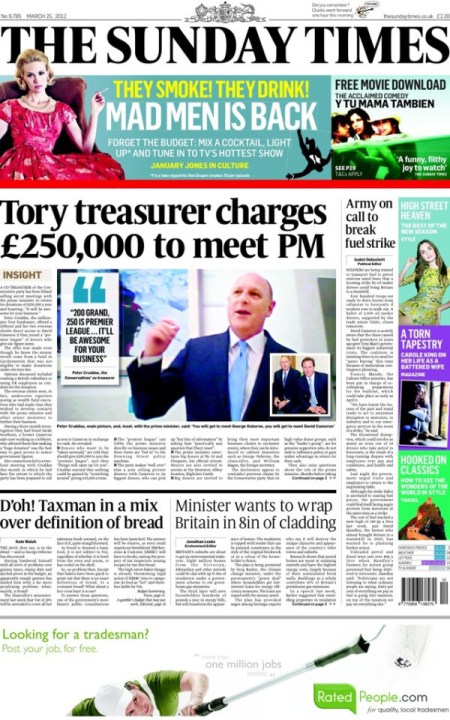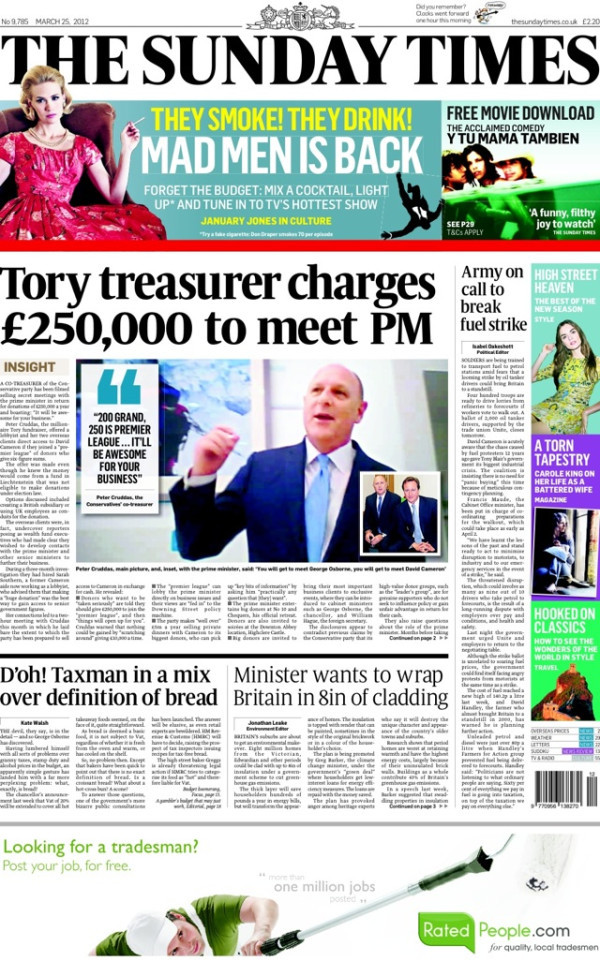‘It will be awesome for your business.’ So said Peter Cruddas, co-treasurer of the Tory party, as he tried to peddle access to David Cameron for £250,000 a shot. Only he wasn’t talking to businessmen this time; he was talking to a couple of investigative reporters from the Sunday Times (£), who were armed with dictaphones and video cameras. And, as the resulting footage shows, he blustered himself over the edge.
A ‘premier league’ of donors was spoken of, whose ideas are ‘fed in’ to Downing Street’s policy process. There was a claim that the biggest donors can be invited for dinner at Cameron’s private flat in No.10, where they can ask him ‘practically any question [they] want’. And on it goes, taking in dodgy donations from Liechtenstein and photographs with the PM along the way.
The timing of this could barely be worse for the Tories, after a Budget that met with antipathy rather than applause. The ‘open for business’-style lines in George Osborne’s speech now have a grim, retrospective irony to them.
But this is more about how our politics is conducted than anything else. Cruddas has now resigned. The Tories have issued a statement to assure us that, ‘donations to the Conservative party do not buy party or government policy,’ and they will now conduct their own investigations. But, as Tim Montgomerie suggests, more will have to be done to make donations less greasy — and quick.
I’ll finish with the words of Cameron himself, when he warned about the ‘next
big scandal’ in politics, two years ago:
He was right then. He must sort out this corporate lobbying — right down to the donations that fuel it — now.‘It’s an issue that crosses party lines and has tainted our politics for too long… an issue that exposes the far-too-cosy relationship between politics, government, business and money. I’m talking about lobbying — and we all know how it works. The lunches, the hospitality, the quiet word in your ear, the ex-ministers and ex-advisors for hire, helping big business find the right way to get its way. In this party, we believe in competition, not cronyism. We believe in market economics, not crony capitalism. So we must be the party that sorts all this out.’







Comments